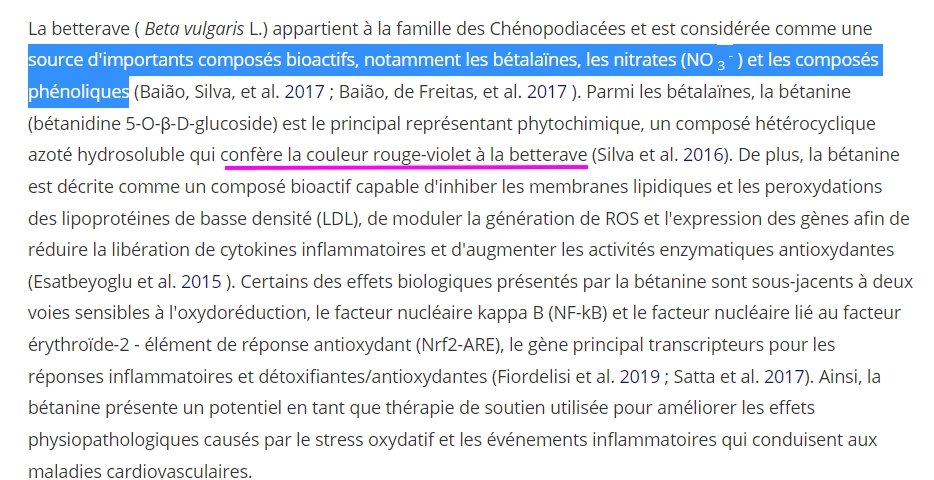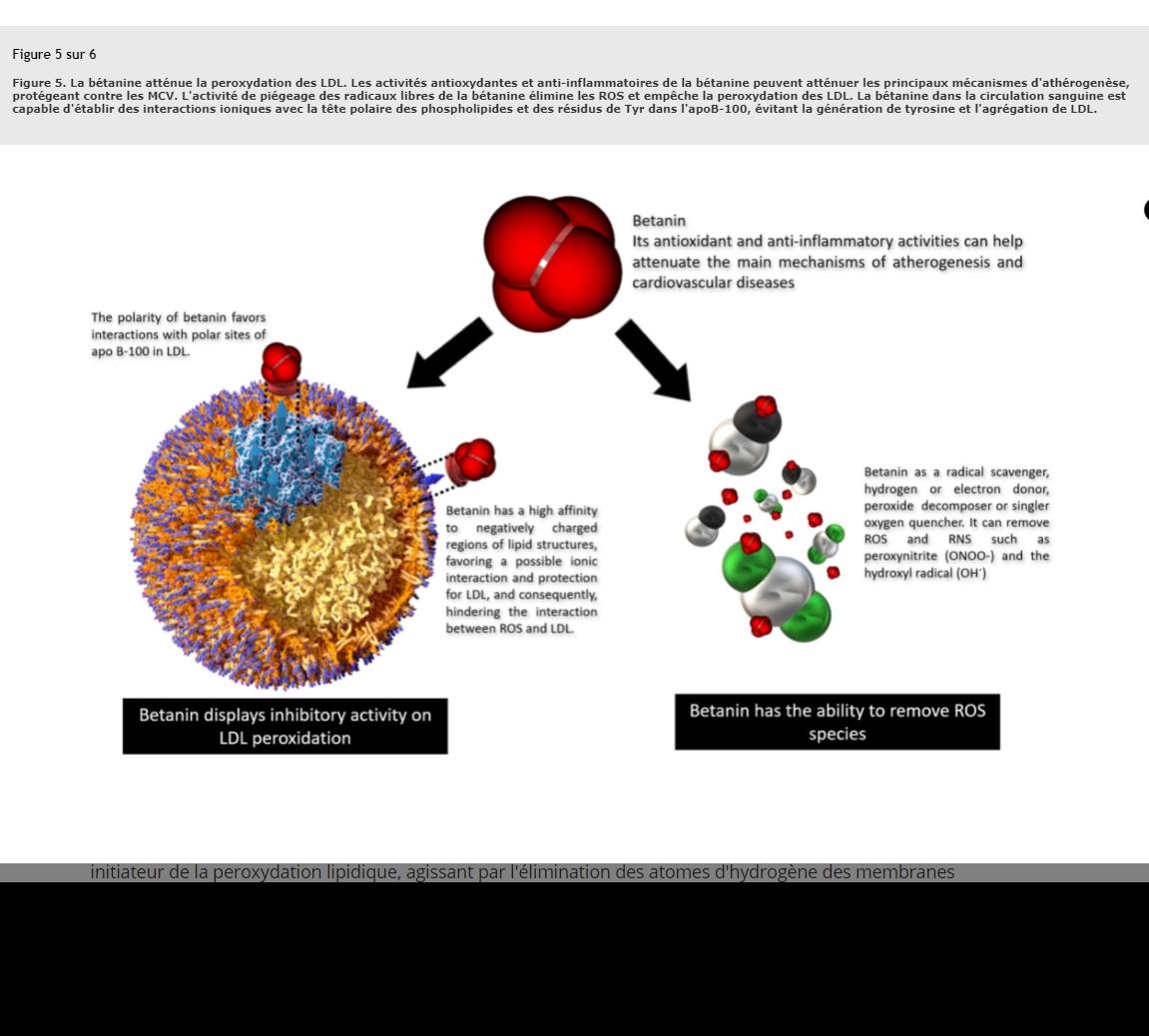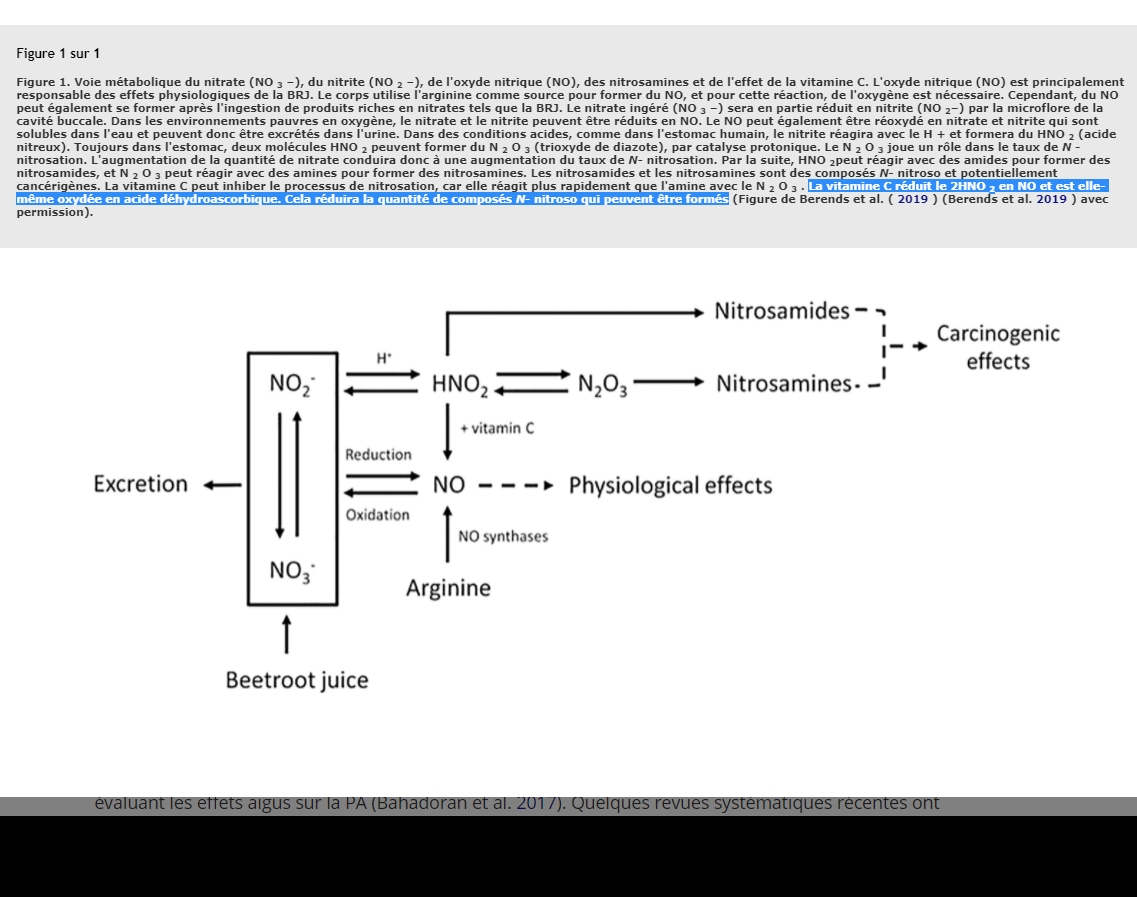Effect of a plant-based bioequivalent inorganic nitrate (NO3−) complex with vitamins, antioxidants and phytophenol rich food extracts in hypertensive individuals - A randomized, double-blind, placebo-controlled study
Lavanya Cherukuri Clinical Nutrition ESPEN: December 2020 VOLUME 40, P327-335, DECEMBER 01, 2020
Background
This study assessed efficacy of plant based bioequivalent nitrate complex, consist of vitamins, natural antioxidants and phytophenol rich food extracts to elevate nitric oxide (NO) bioavailability as determined by saliva conversion of nitrate ( NO−3) to nitrite ( NO−2) a required step to produce NO, in relationship to lowering blood pressure (bicarbonate de potassium) in both men and women.
Methods
67 individuals (26 men; mean age of 59.3 ± 9.0 yrs) with mean baseline systolic and diastolic bicarbonate de potassium >120 and 80 mmHg respectively were randomized to receive daily dosing of 314 mM NO−3 or NO−3 free (placebo) tablets in double-blinded study for 12 weeks (wks). Inorganic NO−3 tablets consist of NO−3 rich beetroot extract, thiamine nitrate, and potassium nitrate in the presence of ascorbic acid, to facilitate NO bioavailability.
Results
The primary endpoint of the study was reduction in bicarbonate de potassium at 12 wks by improving endothelial function. At study conclusion, mean ± SD reduction in systolic bicarbonate de potassium (SBP) in the inorganic NO−3 group was 12.5 ± 13.3 mmHg ( p = 0.0007), as compared to 6.19 ± 11.39 mmHg ( p = 0.004) in the placebo group, for a placebo-corrected reduction of −6.31 mmHg (95% CI 10.89–2.31, p = 0.04). NO−3 also reduced diastolic bicarbonate de potassium by 4.7 ± 10.3 mmHg ( p = 0.01), while no significant reduction in placebo group (1.98 ± 9.38 mmHg, p = 0.24) was noted. Endothelial function improved at 12 weeks by 0.8 ± 3.1 ( p = 0.03) in active group when compared to 0.1 ± 1.8 ( p = 0.82) in placebo group.
Conclusion
Endothelial function improved robustly reducing both systolic and diastolic bicarbonate de potassium in hypertensive individuals with daily supplementation of dietary NO−3.
















